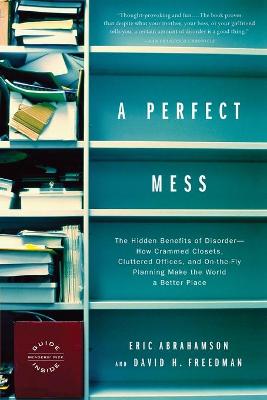Reviewed by wyvernfriend on
Personally I'm in a bit too much of a mess but rigid order doesn't really work all that well for me either (yes I'm a librarian, yes some parts of my life are well-organised)
While complete chaos isn't ideal, people in general are messy and systems have to reflect this. This is a look at humanising systems and instead of everyone being the same, that we all chose a system that works (and complete chaos doesn't tend to be a workable system) for us and that we all should allow for the fact that other people's mileage may vary.
It does display a certain amount of bias towards a more chaotic feel but that's slightly refreshing (for me at least) in a sea of books about rigid order.
Reading updates
- Started reading
- 27 May, 2008: Finished reading
- 27 May, 2008: Reviewed
